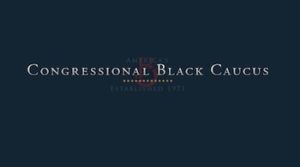
This date, in 1969, is the anniversary of the formation of the Congressional Black Caucus.
It is a group of African American members of the United States Congress who focus on issues of particular interest to Black Americans. Newly elected African American representatives of the 77th Congress joined six incumbents to form the "Democratic Select Committee," which began the organization. The committee was renamed the Congressional Black Caucus (CBC) in 1971.
Founding members were Representatives Shirley Chisholm, William Clay, George Collins, John Conyers, Ronald Dellums, Charles Diggs, Augustus Hawkins, Ralph Metcalfe, Parren Mitchell, Robert Nix, Charles Rangel, Louis Stokes, and DC Delegate Walter Fauntroy. Their goals were to positively influence events pertinent to African Americans and others of similar experience and situation and to achieve greater equity for persons of African descent in the design and content of domestic and international programs and services. While the CBC has primarily focused on African Americans' concerns, the caucus has also been at the forefront of legislative campaigns for human and civil rights for all citizens.
During the 116th Congress (2019–present), the CBC has 2 U.S. senators, 51 voting U.S. representatives, and two non-voting delegates as members. Members of the Congressional Black Caucus represent a variety of districts and constituents from coast to coast, urban and rural, northern and southern. CBC Members, past and present, have been advocates for the human family nationally and internationally and have played significant roles as local and regional activists.
African American members have worked diligently to be Congress's conscience. Still, because politics is ultimately local, they also provide dedicated and focused service to the citizens and congressional districts that have elected them.
Library of Congress
101 Independence Avenue S.E.
Washington D.C. 20540
Black Americans In Congress 1870-1989.
Bruce A. Ragsdale & Joel D. Treese
U.S. Government Printing Office
Raymond W. Smock, historian and director 1990
E185.96. R25